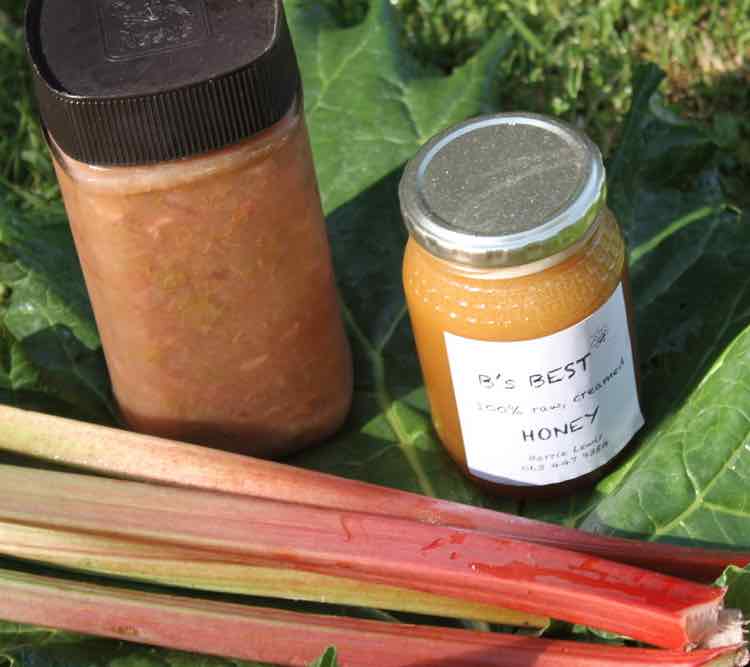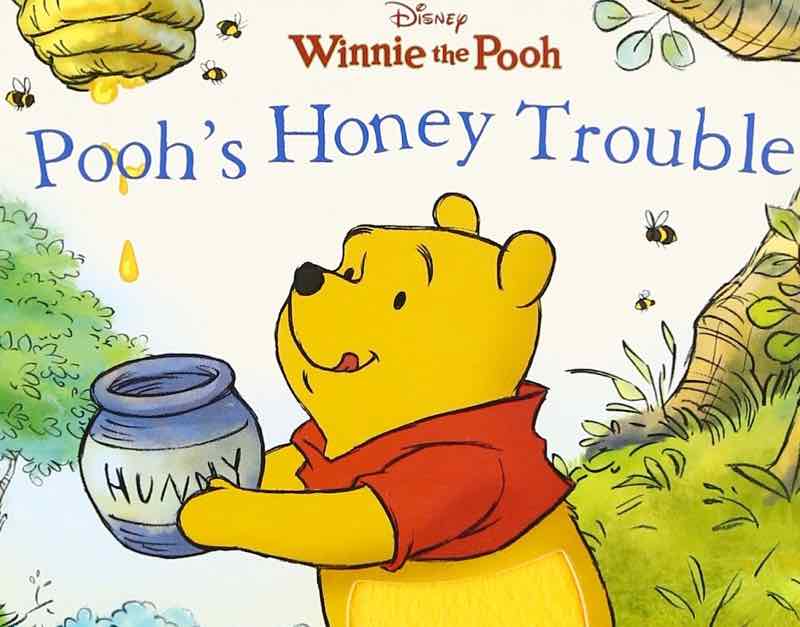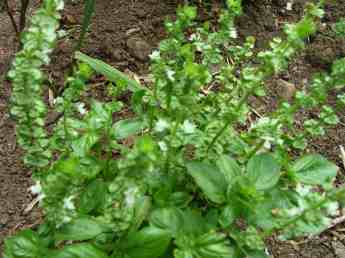| Back to Back Issues Page |
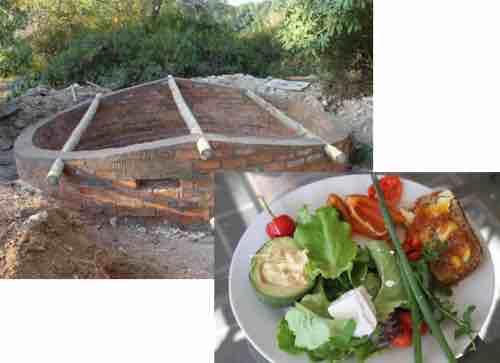 |
|
Comfort food December 03, 2020 |
DearComfort foodThis month we are looking at healthy comfort food; those that add flavour and goodness and to avoid any that simply add layers in the wrong places causing misery in years to come. We focus on the positive; those that bring wellness and help prevent disease. I call them Kingdom Foods; they just add so much flavour and goodness.
That's a Green Zone issue obviously. After our foray for a couple weeks into keeping bees, recognising their importance to our well-being and making our world more friendly towards them, we return to thinking about our own health. One final thought about honey as far as it concerns our own health. It is certainly a comfort food, stimulating those parts of the brain that make us happy but that sweetness can be a trap. Strangely even commercial honey doesn't have as high a glycemic index as white rice and cake flour have, refined starches; but it is still much greater than that of sugar. It is certainly fattening. Unprocessed honey having all the pollen has a low GI and even more important, active enzymes and the important phytochemicals. Still we
limit it to 5 tsp per day but that's an arbitrary figure. You simply cannot be healthy without facing the need for everything being sweet or starchy.
The total blood in your body contains only 5g of glucose; if it goes above that the body's hormones immediately take steps to store it in adipose tissue. A slice of bread contain 15g of starch, as compared to a teaspoon of honey four grams. Overloading the body with carbohydrates is the chief cause of obesity. Sweetening with honeyWhen sweetening with honey instead of sugar, always try to add it after cooking, otherwise use that from the supermarket; it's already been spoiled by heating.For example when making rhubarb, the good wife adds the honey after it has cooled to below blood temperature; and never too much. We work on about 1 tsp per helping and with the added cream, it is not glycemic. Those enjoying whole, unrefined foods need have no fear of cholesterol; or carbs for that matter. It's the refined carbs that are devil and yes, simple sugars like honey if you have too much. Our rule of thumb is to limit the total simple sugars to about 3 teaspoons per day; that's about 15 grams. For the average person, keeping total carbohydrate under 150 grams is the benchmark. If you are obese less than 100 g but if you actually want to lose weight, under 50; then the pounds will fall off easily.
Blue zone people grow much of their own foodBlue zone folk live so much longer and more healthily for many reasons; but central has to be that they spend a good deal of time out of doors growing and nurturing their own food.It would seem that moderate exercise as in gardening is more beneficial than pounding the streets or working out at the gym. You won't wear out your ankles and are less likely to slip a disc in the lower back.
"Allotments are such a great hobby; you get healthy exercise without having to run around in circles and you are able to eat all that healthy fruit and veg without any pesticide residues." - John Harrison Flexitarian FlipThe flexitarian way of eating is not to ditch all meat but gradually to start replacing it with vegetables; and in particular legumes for protein.Researchers comparing many different cuisines came up with an astounding fact.
“The low‐meat dishes achieved parity or higher in consumer acceptance across all recipes and flavor strategies.[1]" Notice that, parity or higher. Folk actually like vegetarian food as much, or even more than meat provided that it is imaginatively cooked using what the authors describe as taste, aroma and "trigeminal" strategies. Pungency in our foodFood that stimulates the trigeminal nerve that supplies the tissues in the mouth and nose is what we call pungent. That could be the tears produced by an onion, the burn from a chilli or pepper; or the sharp flavour added by a mustard, horse radish or ginger, for example.The taste buds and smell in the nose, the "special senses," are in fact supplied by other cranial nerves than the trigeminal. In short, if cooks stimulate the senses, then folk find that vegetarian food is every bit as tasty as meat and even better. Some like it hot, spicy and piquant, others sour. It may sound strange but I actually prefer the slight bitterness of tahini over peanut butter, and vinegary olives that have not been overly processed. There are many of these compounds that we seem to love that produce a burning, tingling or numbing sense in the mouth. Just as important, they have remarkable benefits for our well-being. It's amazing just how easy mustard is to make. Mustard research Capsaicin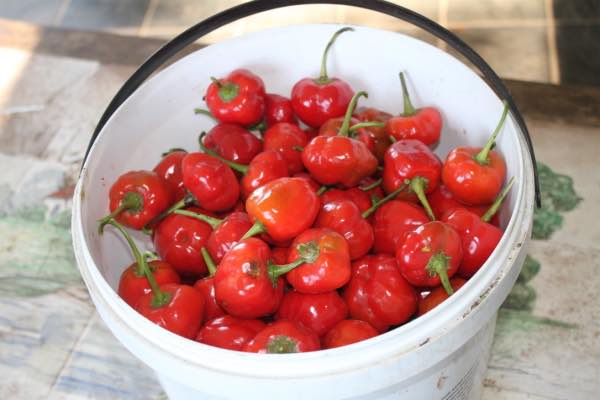
Capsaicin is the heat in chillis; far more important though is the strongly researched benefits in promoting health and preventing disease. For example according to research published in NCI it induces normally occurring aptosis of malignant cells; it represses their growth. Research from the Cedars-Sinai Medical Centre states that capsaicin blocks the growth of malignant cells in the prostate gland especially. Capsaicin also reduces the redness and anger in our muscles, joints and even capillaries; it has proven anti-inflammatory properties. Piperine is another of these phytochemicals in peppers that gives a burning and stinging kick to snacks; its effect is widely used in potato chips to induce us to want more. Twice a week I make a large tub of one of our best comfort foods, hummus to go with a sometimes dull salad. There is always half a peppadew, fresh or frozen, in with the chickpeas and tahini. It is rich in both capsaicin and piperine; a tablespoon when peckish does wonders.
CinnamaldehydeCinnamaldehyde is the phytochemical that provides the wonderful flavour of cinnamon. It has a host of scientifically proven benefits ranging from a potent inducer of aptosis of malignant leukemia cells to helping control the blood sugar of diabetics.It induces fat cells to start burning energy. One of our favourite comfort foods is butternut soup into which I always drop a couple sticks of cinnamon.
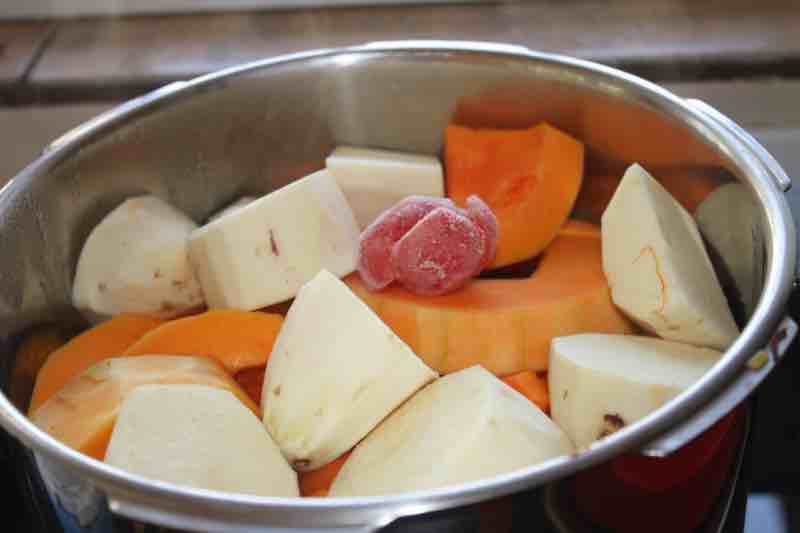
Understanding the influence of pungency on food perception offers us the opportunity to exploit a part of our sensory system that will enable us to turn away from sugary comfort foods that are seductive yet are so destructive to our well-being. Blue zone people use these principles intuitively to create meals that are intensely interesting and nutritious. EugenolEugenol is the marvellous phytochemical that gives cloves and sweet basil their divine scent. But it does far more than give our food its "trigeminal" or pungent stimulation.Bones are constantly being remodelled; in healthy tissue the rate of break down is equal to the new cells being regenerated. In osteoporosis the bone-destroying cells known as osteoclasts are more active; fracture, frailty and disability await. Eugenol has the scientifically proven property of inhibiting the osteoclasts, reducing the destruction of bone. The butternut soup mentioned above always has a few cloves tossed in; sweet basil is part of the green salad we enjoy every day for lunch right through the summer months.
Herbs eugenol oil Sweet basil pesto recipe Changing perceptionsThere is a perception that when we are down and feel the need to turn to comfort food that it must be sweet like chocolate; or perhaps salty pretzels and jerky, what we call biltong in South Africa.Can this perception be changed; could we instead go hunting for some pungent food, rich in those important phytochemicals that improve our health, rather than raise our blood sugar and make us hypertensive? Let us return to our original thesis that vegetable foods, provided they are rich in flavour and pungency, find just as great an acceptance as those which are meat-based. Beating the sugar craving may be more difficult but it certainly can be done. I know because I myself have done it. Foods rich in flavour give me now even more comfort that a bar of chocolate, a can of soda or a cookie. SlothSloth is one of the seven deadly sins. Often depression is a part of the condition since self-pity is at the heart of it, no longer caring about ourselves or the planet. We become indifferent to those things that once we cherished, that are important not only to us and those around us but also to Mother Earth.Whilst we might simply feel that we are being lazy, sloth has much to do with a hormone called leptin that is produced by adipose tissue, telling the hunger centre in the brain that you have had enough, are full, in short that you should stop eating; it is known as satiety. More, it tells us that it's time to get moving and do something, so that the absorbed starches are used up as glycogen instead of raising blood glucose. Researchers have found that leptin secretion by our fat fells is ironically inhibited by chronically high levels of insulin, causing resistance in our cells to absorbe the glucose. Just when our brain should be getting the message that we have enough sugar in our blood stream, instead the hunger centre is being told that we should be conserving energy, moving less, and eating more comfort food. It makes us slothful. It is precisely why the obese feel slothful. It's not that they are lazy. It is because the high levels of insulin, by inhibiting leptin secretion, are duping their brains into thinking that they are hungry, must eat more and conserve energy by exercising less. There's only one solution; cut back hard on carbs so the insulin levels are not chronically raised. We have noted before that Blue Zone people are religious; choosing healthy and nutritious foods and spurning the counterfeit that the world proffers is a spiritual issue.
To sum upAre you hungry or are you bored? Would a walk outside, where light will stimulate the pineal gland not be more sensible than reaching for some comfort food? And must it be sweet or starchy which raises the blood glucose?Blue zone folk would step out into the garden fork in hand, till a small patch of ground and plant some seeds; or take a short walk and achieve an even more satisfactory sense of lightness, instead of reaching for a bar of chocolate. Or perhaps prepare one of those meals, rich in flavour, with a small amount of meat and plenty of vegetables. Could it be eggplant Parmesan rather than a slice of Black Forest cake that, because of leptin inhibition, simply makes a second and even third slice inevitable? Breaking the sugar kick may be as difficult as quitting smoking.
“To be tested is good. The challenged life may be the best therapist." - Gail Sheehy A Christmas confinementThe French describe the Covid-19 lockdown as being like a confinement. Christmas this year is quite likely going to be quite different to any other we have experienced. Will it be the culmination of annus horribilis? Should we refuse to submit to the dictates of this nasty virus?Remembering that out of doors we are almost completely safe from this bug, let's take refreshing walks, well dressed up if you live in the frozen North; inviting a few other lonely souls to join us. The virus is targeting those with raised blood glucose and low vitamin D; sugary comfort food sets us firmly in its sights. Think flavour, plan on rich stews full of vegetables and not just turkey and ham; and perhaps this is the year to give Christmas pud the miss.
"In Paris on a chilly evening late in October of 1985, I first became aware that the struggle with the disorder in my mind, one which had engaged me for several months might have a fatal outcome." — WILLIAM STYRON The Flexitarian Flip™: Testing the Modalities of Flavor as Sensory Strategies to Accomplish the Shift from Meat‐Centered to Vegetable‐Forward Mixed Dishes Next weekNext week we return to a Green Zone issue; something that you can engage in to help protect Mother Earth from the fatal attack by human beings who have become entirely comfortable with destroying the only home where their children can live.Pass this newsletter on to friends and family; and those for whom you think it might be pertinent but only if you feel it is of value. We all get more than enough spam. And start planning a different Christmas this year. Even though we may not be able to attend church services, this virus is thrusting spiritual issues right up our noses; caring for ourselves and the planet.
Till next week. Bernie
|
| Back to Back Issues Page |
